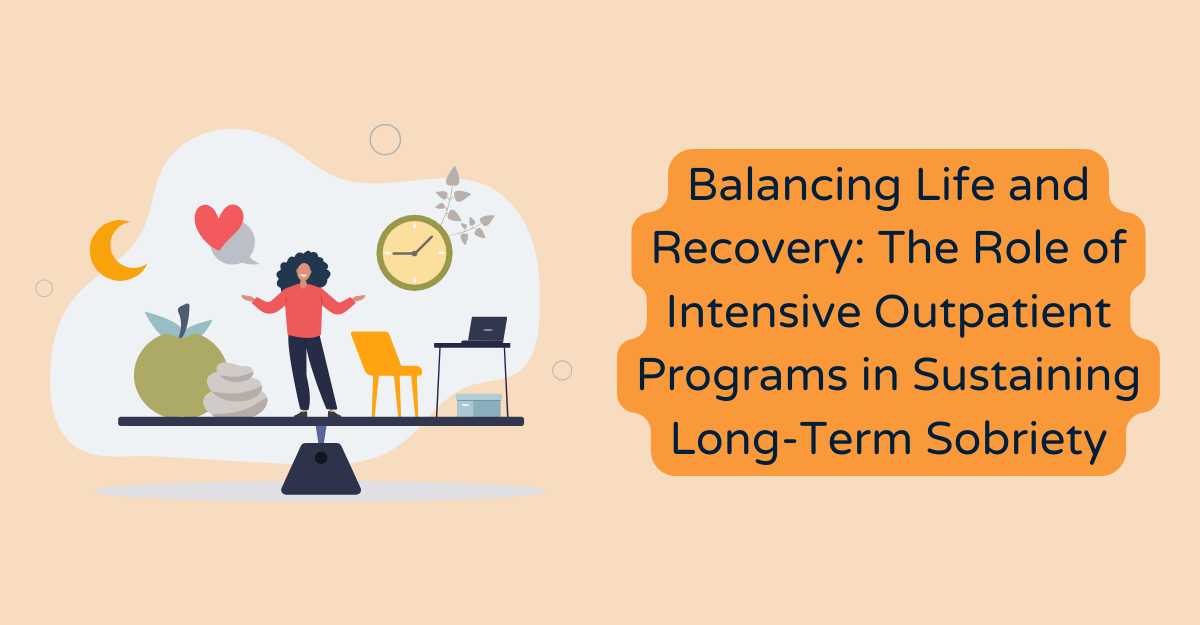
- Intensive Outpatient Programs (IOPs) offer a flexible yet structured approach for those seeking recovery while managing daily life.
- Personalized therapeutic interventions within IOPs cater to the individual’s specific needs on their journey to sobriety.
- Continuous support and the use of telehealth technology are integral to the accessibility and success of IOPs.
- Personal success stories inspire and provide tangible proof of the effectiveness of Intensive Outpatient Programs.
Substance abuse recovery is a complex and deeply personal journey marked with unique challenges and milestones. One of the pivotal aspects of sustainable recovery is finding a delicate balance between personal responsibilities and the ongoing healing process. Intensive Outpatient Programs (IOPs), such as the carefully structured intensive outpatient substance abuse program, have been designed to enable individuals to remain actively involved within their home and work environments while receiving the treatment they need. This article will explore the multifaceted nature of IOPs, their impact on long-term sobriety, and the supportive technologies paving the way for more dynamic and accessible recovery solutions.
The Fundamentals of Intensive Outpatient Programs
IOPs are comprehensive treatment plans that allow patients to integrate effective recovery practices into their daily lives. Typically, these programs require participation in several hours of treatment per week while allowing individuals the flexibility to maintain employment or educational pursuits. Comprised of group therapy sessions, one-on-one counseling, and educational modules, IOPs are tailored to strengthen an individual’s coping strategies and facilitate substance-free living. By serving as a transitional stage between full-time residential treatment and total independence, IOPs fulfill a critical role in the recovery continuum.
Intensive outpatient programs (IOPs) offer individuals struggling with addiction a structured yet flexible approach to recovery. With a focus on providing comprehensive care while allowing participants to maintain their daily routines, IOPs balance intensive treatment and practical life commitments. By integrating therapy sessions, counseling, and skill-building activities into their schedules, participants can develop the tools and strategies necessary for long-term sobriety while still engaging in their professional and personal responsibilities. This blend of support and autonomy empowers individuals to actively participate in their recovery journey and navigate the challenges of addiction with confidence.
Who Can Benefit from Intensive Outpatient Programs?
IOPs are well-suited for individuals who, after undergoing detoxification or residential treatment, require a structured program that still accommodates their need to engage with society. These programs are also ideal for those unable to commit to residential treatment due to personal responsibilities. Enrollment often hinges on a comprehensive assessment by healthcare professionals to ensure the patient’s physical and psychological readiness for this level of care. A support system outside of the program, such as family or close friends, significantly enhances the effectiveness of the treatment.
How IOPs Promote Life Balance and Long-Term Recovery
Long-term recovery hinges upon the ability to navigate daily challenges without reliance on substances. IOPs are precisely designed to foster this equilibrium, providing participants with a structured yet adaptable treatment schedule that can be synchronized with their personal and professional lives. Practices learned during IOP sessions are immediately applicable, offering real-world proficiency in managing cravings and triggers. This holistic approach encourages individuals to rebuild their lives, fostering growth in both personal and professional domains.
The Therapeutic Approaches Used in IOPs
Each patient’s path to recovery is unique, and IOPs reflect this diversity through individualized treatment plans. Evidence-based therapies, such as Cognitive Behavioral Therapy (CBT) and Dialectical Behavior Therapy (DBT), are cornerstones in IOP settings. Group therapy sessions act as a platform for social reinforcement, fostering a community of mutual support. Meanwhile, individual counseling sessions delve into personal barriers to recovery, ensuring that each person’s specific needs and experiences are addressed.
The Importance of Continuing Care after IOP Completion
Upon completion of an IOP, participants transition into a less intensive stage of treatment that continues to support their sobriety. This aftercare phase might include outpatient counseling, support groups and other community resources. Such ongoing support networks are critical, providing individuals with reliable safety nets as they navigate their new, substance-free lives. These resources become invaluable touchstones, offering guidance when faced with the inevitable challenges of long-term recovery.
Measuring the Success of Intensive Outpatient Programs
Success in the context of IOP extends beyond mere abstinence; it encompasses various factors, including improvements in overall well-being, relationships, and societal reintegration. Research points to the significant role of IOPs in setting up a foundation for lasting sobriety, with outcomes indicating their effectiveness in reducing substance use and improving the quality of life. Through consistent, stringent evaluation methods, the continuing success stories attributed to IOPs underline their efficacy and importance.
Technology and IOPs: The Rise of Telehealth Options
The rise of telehealth has revolutionized access to IOPs, breaking down barriers by enabling remote participation. Digital platforms allow individuals to connect with their treatment providers via videoconferencing, online chat rooms, and e-therapy services, thus preventing the need for travel to a physical location. Amidst the growing digitalization of healthcare services, spearheaded initiatives are paramount in supporting expanding telehealth practices within IOPs, ensuring broader reach and inclusivity.
Personal Stories: Real-Life Experiences with Intensive Outpatient Programs
No statistic or study can quite capture the transformative power of IOPs like the personal testimonies of those who have participated. Through sharing their journeys, individuals shed light on the real-world application and efficacy of IOPs. These stories encourage those contemplating entrance into an IOP and validation of their potential to inspire and sustain a life reclaimed from the grips of addiction.